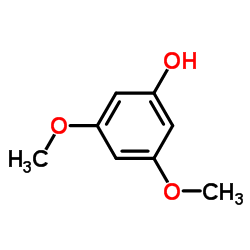Extracorporeal life support in a severe Taxus baccata poisoning.
Claudia Panzeri, Giuseppe Bacis, Francesco Ferri, Gabriele Rinaldi, Andrea Persico, Francesca Uberti, Patrizia Restani
文献索引:Clin. Toxicol. (Phila.) 48(5) , 463-5, (2010)
全文:HTML全文
摘要
Yew (Taxus baccata) is a conifer known to be toxic since ancient times. Taxine A and taxine B, the toxic alkaloids of Taxus, block cardiac sodium and calcium channels causing nausea, vomiting, abdominal pain, cardiac arrhythmias, respiratory distress, coma, seizures, and death in yew poisoning.A 44-year-old male farmer was admitted to the hospital because of a suspected myocardial infarction. First bradycardia and then ventricular tachycardia were present and a severe right ventricular dilatation with biventricular dysfunction was observed but with normal coronary arteriography. He was resistant to conventional therapy and, 6 h after hospital admission, extracorporeal support with membrane oxygenation was applied. The patient recovered. Nine days later, a large number of yew leaves were unexpectedly observed in his feces. Botanical and laboratory analysis confirmed the poisoning. Blood (651 ng/mL) and urinary (5.6 mcg/mL) levels of 3,5-dimethoxyphenol (metabolite of taxicatine) were greater than previously reported in lethal cases. The patient was transferred to a psychiatric unit 17 days after admission.Intensive treatment of severe cardiovascular symptoms with antiarrhythmic drugs, temporary pacemaker, intra-aortic balloon pump, extracorporeal membrane oxygenation, and extracorporeal life support can be life-saving even after a potentially lethal ingestion of T. baccata leaves.
相关化合物
| 结构式 | 名称/CAS号 | 分子式 | 全部文献 |
|---|---|---|---|
 |
3,5-二甲氧基苯酚
CAS:500-99-2 |
C8H10O3 |
|
Importance of phenols structure on their activity as antinit...
2011-01-01 [J. Pharm. Bioallied Sci. 3(1) , 128-34, (2011)] |
|
Fatal poisoning with Taxus baccata: quantification of paclit...
2012-01-01 [J. Anal. Toxicol. 36(1) , 36-43, (2012)] |
|
[3,5-dimethoxyfenol--marker intoxication with Taxus baccata]...
2010-07-01 [Soud. Lek. 55(3) , 36-9, (2010)] |
|
A comparative study of five fatal cases of Taxus poisoning.
2007-09-01 [Int. J. Legal Med. 121(5) , 417-22, (2007)] |
|
Preliminary gas chromatography with mass spectrometry determ...
2010-01-01 [J. Anal. Toxicol. 34(1) , 53-6, (2010)] |